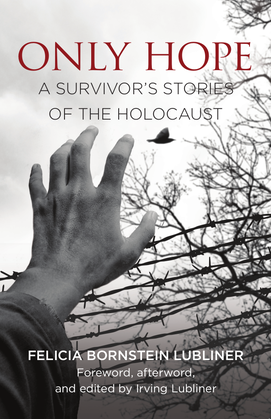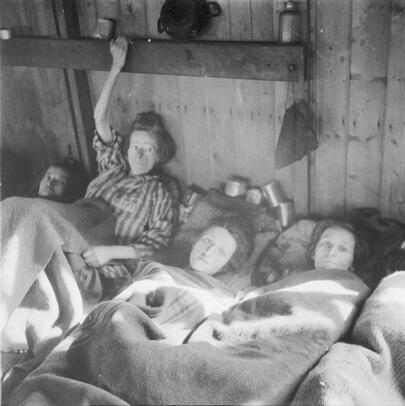Only Hope
|
From the Foreword
|
As I think about my parents’ experiences in the Nazi concentration camps, I wonder: What kept them going? With too little food, death all around them, savage beatings doled out to those not doing their assigned slave labor quickly enough, and the loss of all that had once been dear to them, what could they do to summon the will to live another day? The only answer that comes to me is: They could hope.
With shattered dreams, interrupted educations, no homes or family members to which they might someday return, and a horrifying day-to-day existence, they could not make plans for their futures. They could only hope. Would each day’s meager food ration provide enough sustenance to stay alive until tomorrow? Would the doctor making the selections of who should live and who should die allow them another day’s salvation? If yesterday they were lucky to avoid being singled out by a capricious and malicious guard, would that luck last through another day? They could only hope.
|
Excerpts
|
"Follow Me Into Auschwitz"
Death was cheap at Auschwitz. It was ever-present, stinking its way into your very brain, blackening the sky with its smoke, looking at you from the barrels of guns and from the eyes of the condemned. Death was with you during the dreaded roll calls, where at dawn and dusk you stood for endless hours in ankle-deep mud, with only rags between you and the biting chill of the wind.
It was easy to die at Auschwitz; one did not have to be a hero to die. There were many ways you could have saved the SS the work; all you had to do was give up. Give up willingly the spark of life still flickering in you—that last thing you had, which they were so determined to take. |
"Concert at Auschwitz"
I was sent to Auschwitz late in 1944, when the war in Europe was already five years old. For us, the Jewish people in Poland, those were long, terror-filled years when I learned the paralyzing effect of fear—when my healthy young appetite was replaced by hunger that kept me awake at night, gnawing inside like a worm, and when the only defense against humiliation was our contempt for the tormenters.
I was already then a veteran of two ghettos and had lost trace of my father and two sisters who were sent away and never heard from again. I thought I had seen and lived through the worst. Then I came to Auschwitz. |

